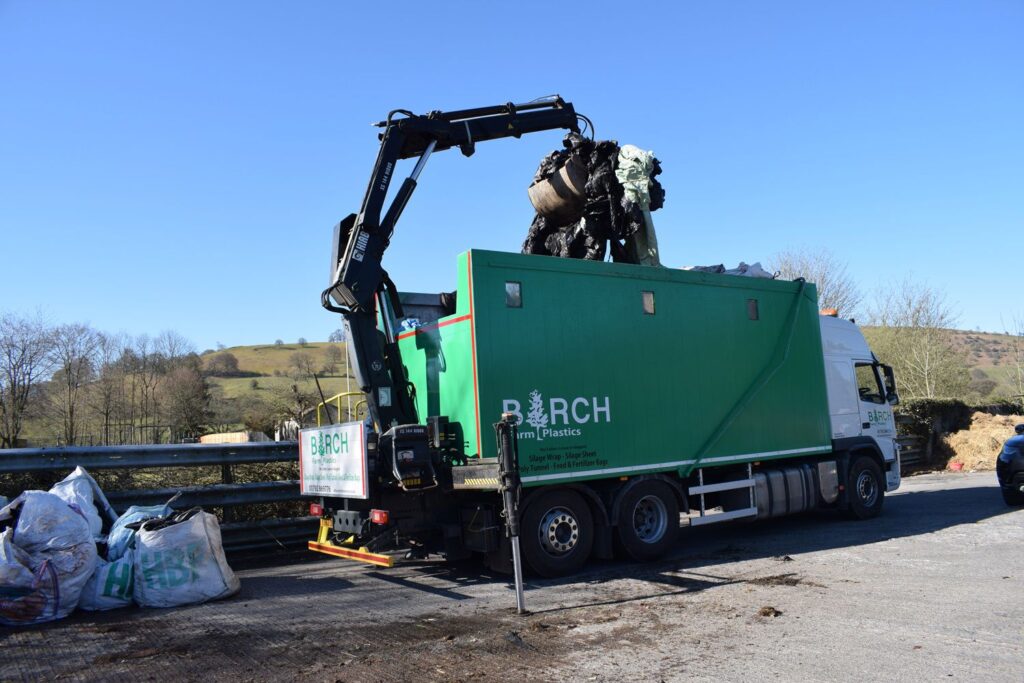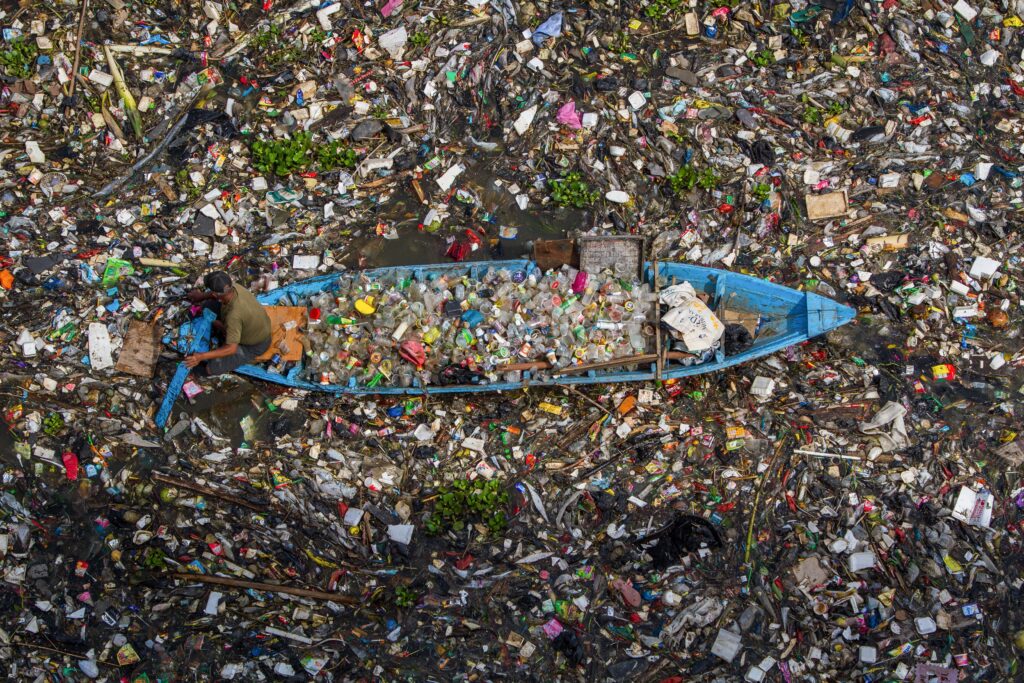The plastic, A5 size flyer has been put through letterboxes alongside the barrage of paper flyers that are received by householders each week. Direct Line claims that the different material makes it more appealing and on the flyer clearly states “Made from recycled and recyclable material”.
” Although the recycling of the material would not cause a problem, the potential handling perhaps would “
– Andy Bagnall, Reprocessor
Guy Hedger, head of Direct Line marketing, said: “We get a better response from plastic flyers than paper. People get a lot of paper put through their door and when something different comes through it catches their eye. If you checked it out you may even find that it is 4 or 5 times higher.”
Each of the flyers carries a claim that it is made from recycled and recyclable material. But, according to industry experts, it is very unlikely that the flyers will be recycled.
Collection
The flyer is made from recycled PET bottles in Germany and it could be recycled with similar material, such as PET bottles.
However, many local authorities do not collect plastic, and those that do normally collect only plastic bottles. Residents are usually actively discouraged from placing other types of plastic materials out for collection.
In West London, one confused Hillingdon resident who had received the flyer, told letsrecycle.com: “We receive lots of paper junk mail through the door but we always put it out for recycling. I don’t know what we are supposed to do with this plastic junk from Directline.
“I checked with our council and they only want bottles. I think its really misleading and unfriendly to the environment for a big company like Direct Line to say something is recyclable when there is no way for us to recycle it,” he added.
Lee Marshall, chair of the Local Authority Recycling Advisory Committee (LARAC), commented that, although the sentiment on the flyer is welcomed, it is not feasible for the leaflet to be collected in many local authorities.
“Recyclable is a very general statement. Most things can be described as recyclable but it depends what is available in your area,” he explained.
MRF
If the flyer finds its way into a recycling sack there is still a limited chance that it will find its way into the hands of a reprocessor. At a MRF plastic bottles are often picked out by hand, and Mark Burstall, chairman of the British Plastic Federation Recycling Council, believes that it is unlikely to be spotted by pickers as a PET product.
He said: “The issue is people recognising that the leaflet has to be picked out of the waste stream. What is the likelihood of it being recycled at the end of life? It is down to whether it will be collected and sorted – let’s be honest it probably will not be.
“You need the infrastructure in place, if a local authority is collecting plastic then it may be looking out for them, but if there are only half a dozen coming through a week it is unlikely they will pay much attention to them,” he added.
” We get a better response from plastic flyers than paper. People get a lot of paper put through their door and when something different comes through it catches their eye “
– Guy Hedger, Directline
If the flyer had managed to be collected and sorted, once it gets to a reprocessor there is still a very high chance that it would not be recycled. Many reprocessors use plastic sorting machinery that deals specifically with bottles and thin sheets of plastic, such as the Directline flyer, could cause problems on MRF belts and in sorting processes.
Andy Bagnall, operations manager at St Helens based reprocessor Delleve Plastics, said: “If it is pure PET then it could well be recycled. But we have an autosorting system designed to sort bottles and my fear would be that the sheets would not be sorted properly on the belt.
“There is a possibility that it could go straight through alongside the contaminants. Although the recycling of the material would not cause a problem, the potential handling perhaps would,” he said.
| Related links: |
Georgina Bloomfield, recycling campaigner at Friends of the Earth, added: “In many areas people don't have access to convenient facilities for plastic. This will hinder the attempts of this particular piece of communication. At Friends of the Earth we believe it would be better to print on recycled paper.”







Subscribe for free